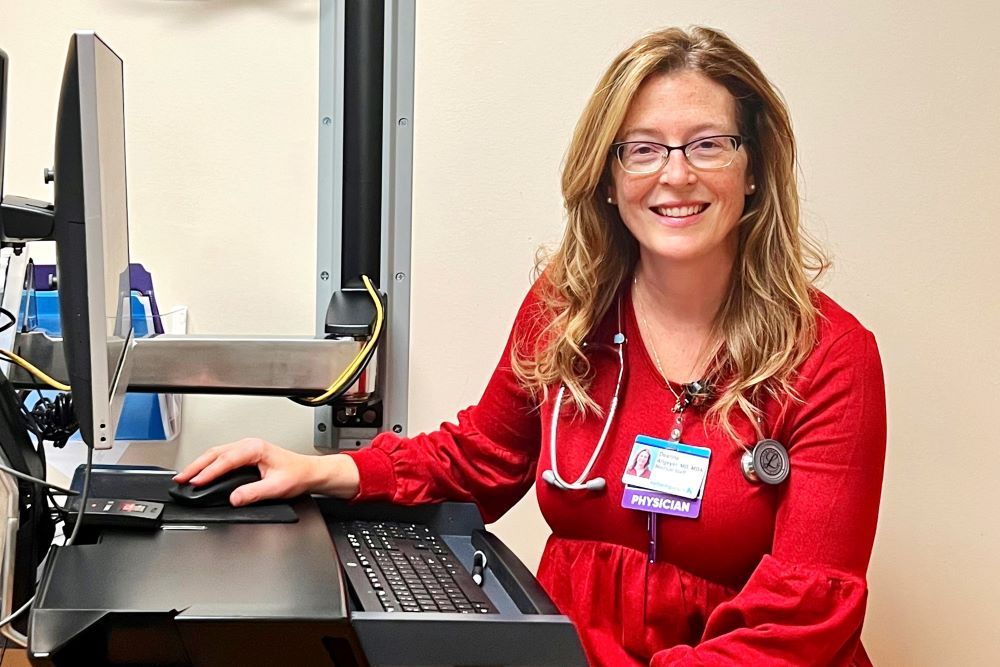Primary Care
Want to learn more about this at Kettering Health?
When stressed, our brains enter a state of fight or flight, producing high levels of adrenaline. Over time, too much of this hormone can cause complications.
Knowing the physical symptoms of stress can help you avoid significant health issues.
“Everybody is different,” Dr. Deanna Allgeyer, primary care physician, says. “You need to be able to listen to your body cues.”
Chest pain
In stressful situations, you might notice an uncomfortable feeling or sharp pain in your chest as your heart races. This is from higher-than-normal levels of adrenaline raising your blood pressure.
Although uncomfortable, this sensation isn’t dangerous. But prolonged high blood pressure requires your heart to work harder. Like any muscle, the heart grows larger as it works harder.
“When the heart muscle gets bigger, the heart doesn’t function quite as well as it should,” Dr. Allgeyer says. This weakens your heart, putting you at a higher risk for heart conditions.
Stomach issues
Adrenaline can also upset the stomach and GI tract. Because of this, you might feel nauseated when stressed or feel sharp pains in your stomach. You may also notice a change in your bowel movements.
During the fight-or-flight response, the heart pumps less blood to the stomach as your body prepares your muscles to either fight or run. This isn’t an issue for short periods of time, but chronic stress can lead to complications.
“You actually can get an increase in acid production,” says Dr. Allgeyer.
Increased stomach acid can lead to stomach ulcers, which are small, painful sores in the stomach lining. Left untreated, stomach ulcers cause internal bleeding, resulting in anemia.
Managing stress
Stress is a normal part of life, but too much of it can damage your health. Maintaining a healthy lifestyle—exercising regularly, getting enough sleep, and eating a balanced diet—makes us less susceptible to the long-term dangers of stress.
But if you do feel stressed, or notice these symptoms, focus on deep breathing exercises. According to Dr. Allgeyer, a few deep breaths can calm our minds in stressful situations.
“Your mind is a very powerful thing,” she says. “I always talk about the importance of self-care and how focusing on your mental state can really improve things.”









